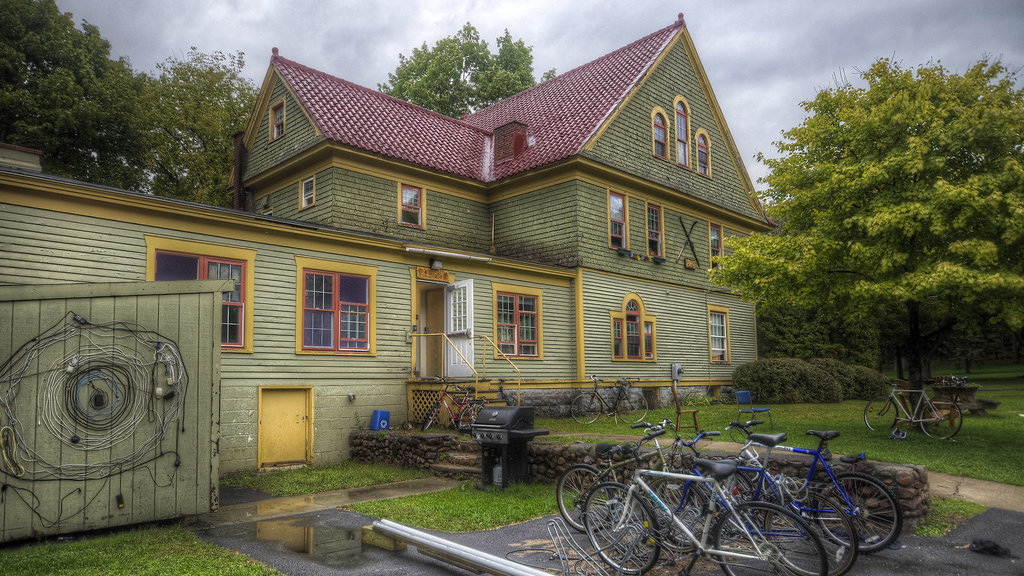Last week’s Thelmo review of the Outing Club budget turned into an investigation as senators, chair heads and nearly thirty members of the St. Lawrence community voiced concerns over inclusivity and transparency within the club. Outing Club President Ruben Castren 18’ presented alone for two straight hours, explaining the OC’s multifaceted budget and attempts at diversity.
Despite Castren’s best efforts, some Thelmo members left unconvinced. “Walking into the room, I had a couple of questions,” stated Safety and Security Chair Tumo A. Koonste ‘18, “but when I left, I had even more questions.” Koonste has been involved in OC budget and inclusion discussions for more than a year, though he gives Sadaf Delawar ‘18 credit for the rallying of people to sit in on last Wednesday’s meeting. “I don’t think that anyone has ever said that we should penalize them for having $80,000, all we want to do is hold these groups accountable, regardless of whether they are our friends or not,” said Koonste.
Others who participated in the meeting were able to outline what they would hope to see from the Outing Club in future years, as well as what they see as shortcomings now. “The OC serves a few people on campus with a huge budget.” said Chair of Diversity & Inclusion Shedrack Bogonko ‘22. Other than the tent party, OCtoberfest and Titus, Bogonko believes that the Outing Clubs lack of inclusion stems from an issue of communication, both in how the OC reaches out to participants for trips and to other organizations to promote diversity.
Sadaf Delawar ‘18 believes that the OC could improve its already expanding outreach programs by directly contacting organizations that don’t usually participate in Outing Club trips. Outing Club members could visit them directly to try and have a conversation about what that specific club has interests in. Delawar claims this would allow organizations like BSU or La Sociedad to access resources that their own budgets cannot provide, all the while allowing the OC to connect with more students on campus.
The method of selection for most smaller trips, a “first come, first serve” method came under fire. In Thelmo, many audience members questioned why students who are friends with Outing Club members are participating on trips more than those are not. “Yes, it is a fact that if you are close friends with an outing club guide, you are probably more likely to know what trips are up and coming,” Castren said after the meeting, “I recognize that there is room for abuse in the system we have, but I don’t believe that any of our guides abuse the system.”
Five other Outing Club members confirmed that they had not noticed any abuses in the selection system. They suggest that if any patterns in participation exist, it is largely due to a flaw in the “first come, first serve” method, not in the integrity of the house members. “However, the doubt will always be there, whether it’s by me, or other students of color, of how spontaneous and random that is,” Delawar explains.
As a possible solution, Delawar and Bogonko both agree on a new model, requiring Outing Club members to create a window of time in which participants can respond, eventually compiling and randomizing the resulting list. Outing Club Treasurer Gunnar Nurme 21’ was open to this new model, as well as other possible reforms, such as making one of the three trips a house member leads be a beginner trip, or prioritizing students who do not plan on returning home for mid-semester break trips.
All these efforts are part of a general shift in Outing Club house members that both Nurme and Nick Catlin 18’ have noticed. This year’s house has many more females than it had ever before, explains Ruby Marden 21’, and is less focused on executing the most extreme trips for a small group of enthusiasts, instead operating for all of campus.
“I think a lot of us weren’t into the idea of the old OC, and felt as though it shouldn’t be treated as something that was only for the people in the house should be privileged to, and that we should serve the whole student body,” explains Nurme. The rising sophomore class is determined to improve the outreach of the Outing Club, hopefully dispelling some of the house conduct rumors along the way.
These rumors include a $6000 budget for personal Outing Club merchandise, the use of Visa gift cards to hide unsanctioned purchases, members consistently choosing their friends for trips, and the general belief that funds are misused or missing. All of these claims were proved or testified by multiple Outing Club members to be false. In reality, the personal merchandise budget is $850, and is used strictly for Titus and Peak Weekend for recognition and safety purposes.
The budget did not include any Visa gift cards, and guides are assigned P-cards with well calculated, set amount of funds pertaining to the specific trip length. Guides are instructed not to indulge whatsoever, limiting each person on the trip to a food budget of about $7 a day, according to Nurme. All transactions are recorded and proven by receipts, which are all sent to SLUAC Treasurer Phil Scott for auditing.
While it is clear that there is a need for reform in both outreach and budget transparency, it seems as though many of the claims raised against the Outing Club were unsubstantiated, or are issues of the past. Despite this, the need for diversity remains present. “To those who have much, there is a moral obligation to share,” explains Associate Dean for Diversity and Inclusion Kimberly Flint-Hamilton. “They have the ability to do so many different wonderful things for campus, shouldn’t one of those things be to use their resources to create a more inclusive community, in fact, possibly to lead the charge?”



